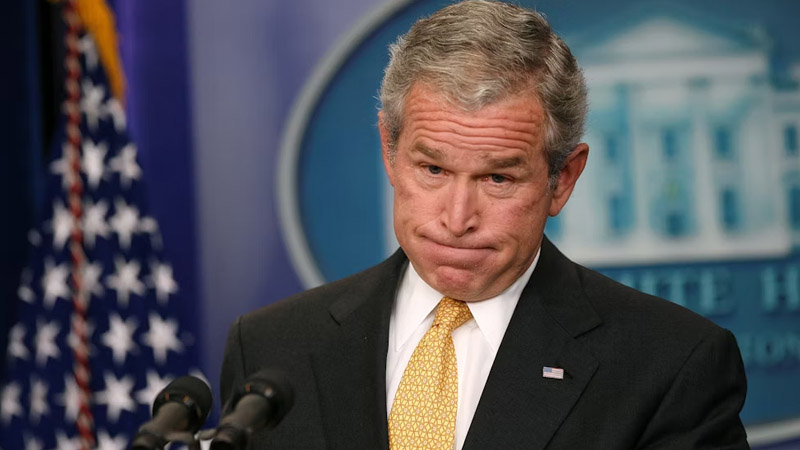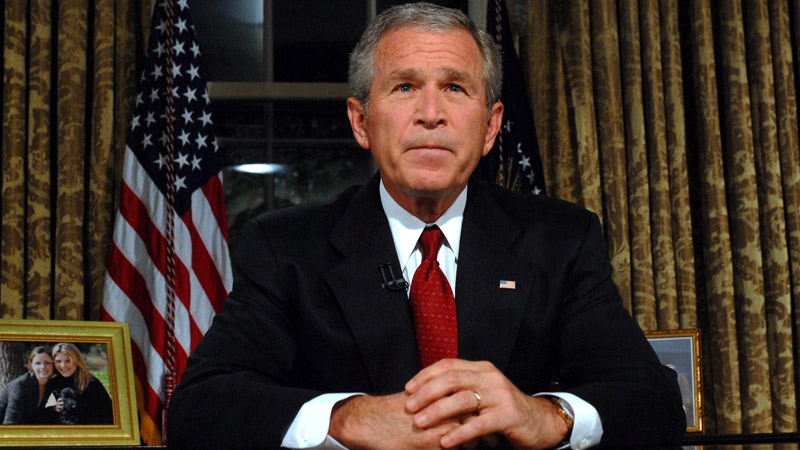In a recent interview, former President George W. Bush offered a message of reassurance to Americans, suggesting that turning to religion could be a remedy for the country’s growing divisions. Bush, who has previously criticized Donald Trump but stopped short of endorsing Vice President Kamala Harris, has generally remained quiet about the current political climate. However, his latest comments, played on Fox News, reflect his belief in the resilience of the American spirit and the power of faith to bridge divides.
When asked what message he would give to Americans to inspire kindness, Bush’s answer was straightforward: “Turn to religion.” He expanded on this sentiment by defining religion as a source of love. “Religion is love. I’m not sure how else you do it,” he said. For Bush, the notion of faith transcends political lines and serves as a foundation for compassion and understanding.
The former president’s response to the nation’s divisions was a simple declaration: “America will be fine.” His optimism contrasts with more urgent calls to action from other political leaders, but Bush’s tone reflects his belief that beneath the tensions, there remains a strong undercurrent of kindness in the country. “I think there’s more kind than not kind in our country,” he added, suggesting that kindness, though sometimes overshadowed, is still a dominant trait among Americans.

Bush’s remarks, however, have sparked mixed reactions. Some have praised his emphasis on faith as a unifying force, while others argue that his response oversimplifies the country’s deep-seated issues. Critics contend that urging people to “turn to religion” may not be a sufficient answer for many Americans who feel disenfranchised or marginalized, particularly as different interpretations of religion can sometimes fuel division rather than unity. Additionally, some feel that Bush’s response sidesteps pressing social and political issues that require concrete solutions.
Bush’s suggestion reflects his lifelong commitment to faith, which played a central role in his presidency and personal life. Known for his strong religious convictions, Bush’s approach to governance often intertwined with his beliefs. His comments suggest that he continues to see faith as a stabilizing and guiding force in American life. However, in the current political climate, some question whether this message resonates as strongly in a nation where religious affiliations are increasingly diverse and where secularism is more prominent than in past decades.
In his statement, Bush refrained from offering specific political commentary, maintaining a distance from the more contentious elements of modern politics. While he has voiced concerns about the direction of the country, especially regarding Trump’s leadership, he has generally avoided taking an outspoken stance in recent elections. By encouraging Americans to embrace kindness and love through religion, Bush seems to advocate for a return to basic values over direct political involvement.
As the nation grapples with significant ideological divides, Bush’s perspective offers a reminder of a different approach to unity—one rooted in individual character and compassion. Whether his message resonates widely or not, his remarks underscore a call for a softer, less confrontational path to addressing the country’s divisions.

